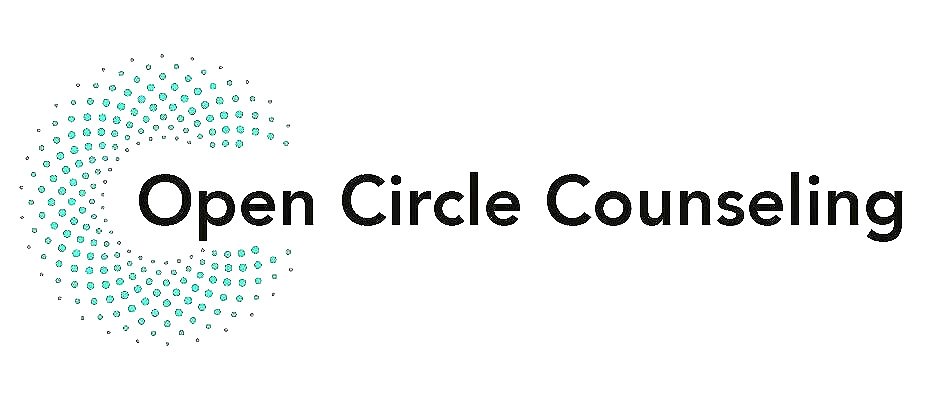You know you want to ‘regulate your nervous system’ and aren’t sure how to do it. You’re connecting the dots around how high stress events sneak up and negatively impact your day to day, but it’s confusing to figure out how to change the pattern. You’re tired of not fully seeing the picture and feel blocked on how to complete it.
Is A Painful Memory Keeping You Stuck In The Past?
Are you holding onto unresolved pain, distress, or a secret from your past? Has an event or memory from childhood created intrusive thoughts or discomfort? Are you feeling disconnected or lost in certain aspects of your life?
Perhaps you are a survivor of an attack, accident, or assault. Or maybe you experienced some form of neglect or abuse as a child—enduring physical, emotional, mental, or sexual mistreatment—or were raised by verbally or emotionally abusive parents. It could be that one or both of your parents were addicts, and you are now struggling to reconcile with the kinds of numbing behaviors that they modeled to you during your childhood.
As a result of these traumatic experiences, you may feel a lingering sense of distress or unease. Yet everything you try—between self-help books, mind-body work, or even emotional numbing—never seems to heal your pain. It may feel as though any temporary relief you get is just a Band-Aid that’s only masking the problem.
Because you are so preoccupied with distressing events from your past, you may have a hard time being present in your life. Maybe you often “check out” or withdraw from others or struggle with mood swings that seem to come out of nowhere. And it’s also possible that you have a hard time feeling safe, resulting in a sense of hypervigilance, fear, and uncertainty.
Moreover, if you came from an environment where emotional awareness and expression was not valued, you may have trained yourself to have a stiff upper lip. Your range of emotion might be relatively limited, or perhaps you have a hard time relating to others. You may also feel like your social supports have dwindled over the years or that you continue to have conflict with family members who have caused distress and turmoil.
Living with unresolved trauma can make the world feel like a chaotic, unfeeling, and disconnected place. All you want is to erase the tragedy and start fresh with a new set of experiences. But while it may be impossible to rid yourself of the painful parts of your past, healing is achievable in trauma therapy at Open Circle Counseling.
Trauma Often Originates In Childhood
The vast majority of Americans, some 70 percent, have experienced some form of trauma in their lives. However, because so many forms of trauma are kept secret—especially the ones that predominantly impact children—we can assume that these numbers are even higher. For example, for those of us who were raised in homes where there were abusive or addictive tendencies, we were likely encouraged to stay quiet about our adverse experiences and underplay the effects they had on us.
So much of what we carry into adulthood relies on the behaviors that were modeled to us as children. Growing up in a home where addiction and/or abuse was rampant, we may later develop the same emotional numbing tendencies, such as substance use, codependency, or self-harm. And the survival-based skills we adopted as children, while likely helpful and even essential at the time, may have since become maladaptive or unhealthy.
Much research has been done on trauma in recent years, especially when it comes to the detrimental impact that adverse experiences can have on children well into adulthood. In fact, we have a quantifiable measure of trauma’s impact on children as a result of the Adverse Childhood Experiences (ACEs) study, which is now considered as a branch of violence prevention within the Centers for Disease Control & Prevention (CDC).
By taking the ACEs quiz, you can have a better idea about how your trauma has impacted you on a physical, emotional, and psychological level. And this information can help you to be more fully aware of and proactive about the mind and body challenges you may encounter as a result of unresolved distress and that keep you from flourishing as an adult.
Armed with this new awareness, you can begin the process of healing in trauma therapy.
Therapy Empowers You To Choose How To Tell The Story Of Your Trauma
Trauma survivors often suppress or avoid certain thoughts, sensations, and memories to protect themselves from feeling the full extent and impact of their pain. And while that can provide relief in the short term, the truth is that all of that pain is sitting—stuck in the body—and manifesting in uncomfortable symptoms that disrupt daily functioning.
In therapy, you will be given an opportunity for release. All those emotions or memories that you have been avoiding will find a safe space in an empathetic, nonjudgmental counseling atmosphere where I will help you uncover, understand, and work through your pain. Moreover, because the therapeutic relationship in and of itself is an element of healing, therapy will give you a chance to practice becoming vulnerable and voicing your experiences with another person.
Once you have decided to work with me, you will be asked to complete an intake that will give me a sense of your needs for treatment. I aim to make this process as safe for you as possible, so I will never ask you to share more than what you’re comfortable with, and we will always move at a pace that works for you.
As I get an idea of your goals for therapy, we will work together to begin building awareness around your trauma triggers or activations. We may incorporate examples from your day-to-day life so that you can become more aware of the ways that trauma manifests, and I will teach you mind and body techniques that will help those feelings of discomfort shift or be redirected into more manageable thoughts and sensations. Along the way, I will acknowledge your pain and celebrate your wins, hopefully instilling you with a sense of peace and progress.
Along with body-based approaches, I also incorporate elements of Cognitive-Behavioral Therapy (CBT) and Dialectical Behavior Therapy (DBT) into therapy to help you rewrite your story so that you can relate to yourself and your environment with a healthier and more optimistic mindset. In addition, I may use expressive arts therapy to help you better understand your trauma, especially if it occurred very early in your childhood.
As you begin to trust yourself more and more, you can learn to once again feel safe in your body and environment. And by creating a better relationship with yourself and those around you, you can learn to set boundaries in the areas of your life that have caused you pain.
Although the scars from your past may always be there, you can learn to own those scars in a way that harmoniously integrates them with the rest of your past, present, and future experiences. The phrase “post-traumatic growth” exists for a reason, and with trauma therapy at Open Circle Counseling, you can truly mend and heal from old wounds.
Maybe it’s time to see a counselor about your trauma, but you’re still unsure…
I’m not sure I want to go there with my trauma right now.
As a client-centered therapist, I don’t have an agenda when it comes to your trauma. I am trained and careful not to re-traumatize clients, and we can move discussions along at a slow and comfortable rate until you’re ready to confront your pain.
I’m scared I won’t be able to handle what comes up in trauma therapy.
As mentioned, I will never ask you to share details about your experience unless you want to. We will always move at your pace. From a clinical point of view, I know that there are safe, non-traumatizing ways to come in and out of the more uncomfortable feelings, and I am here to guide you through those moments.
Will I ever heal?
Although you may feel scarred now, there is a beauty in choosing which string to mend your wound with. Therapy gives you a chance to regain control so that you are the one who gets to shape how your recovery looks. And as you begin to feel more empowered and less distressed by the memories of the past, you will see that healing is, in fact, possible and closer than you think.
Your Wounds Don’t Have To Be A Shameful Or Secret Part Of Your Story Any Longer
If you’re holding on to pain from the past, therapy can help you to understand your experiences and heal from trauma. To schedule a free, 20-minute consultation to see if we’re a good match, please contact me for more information.
Recent Posts




